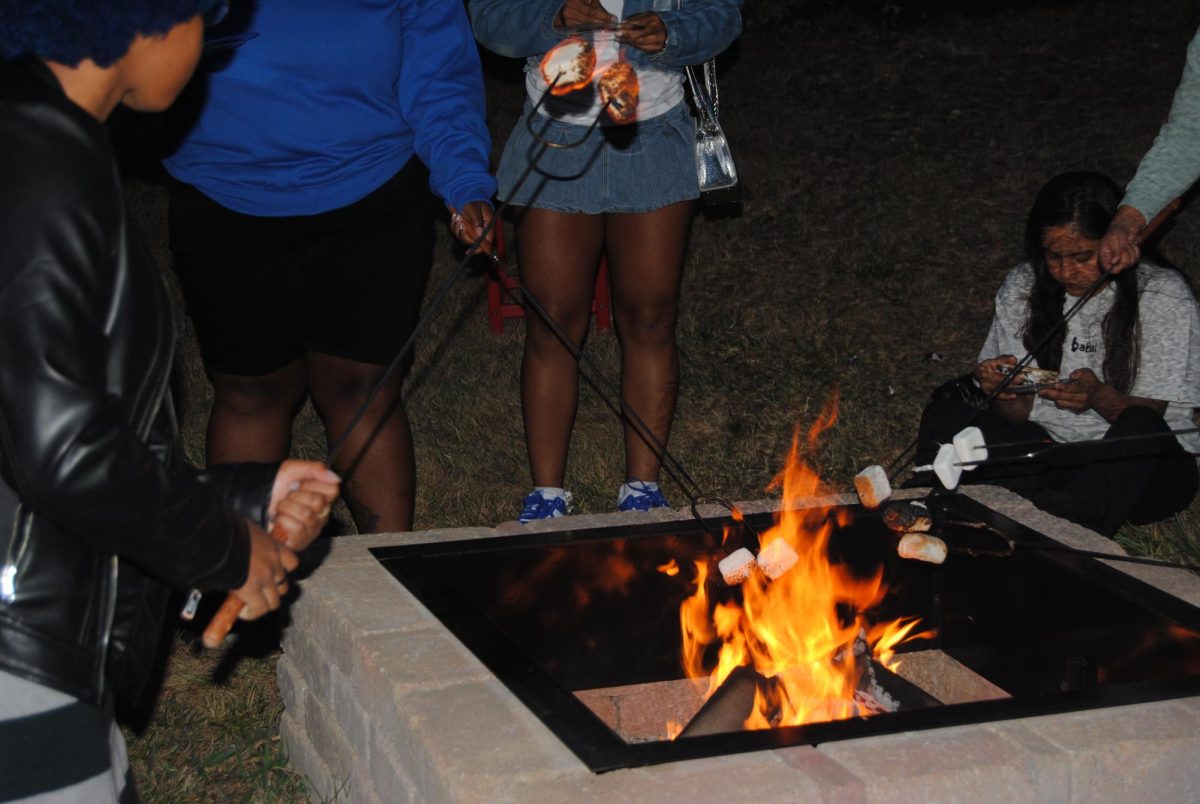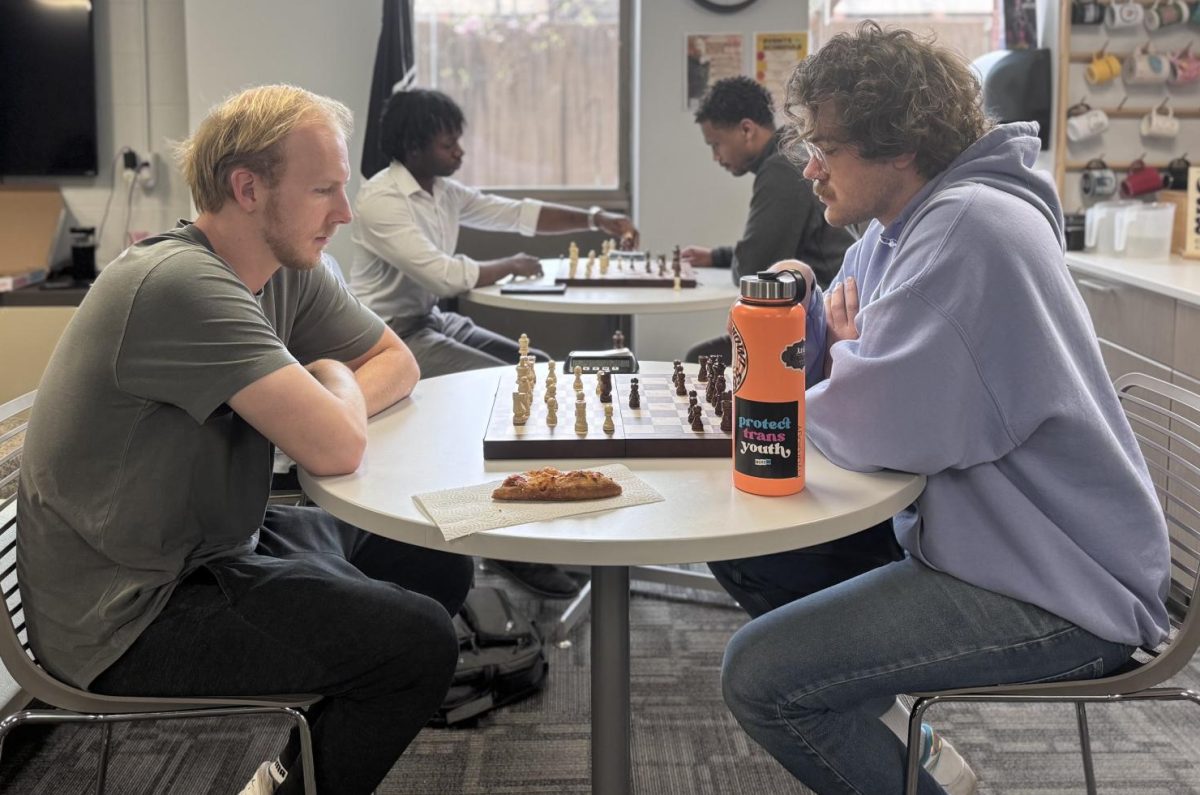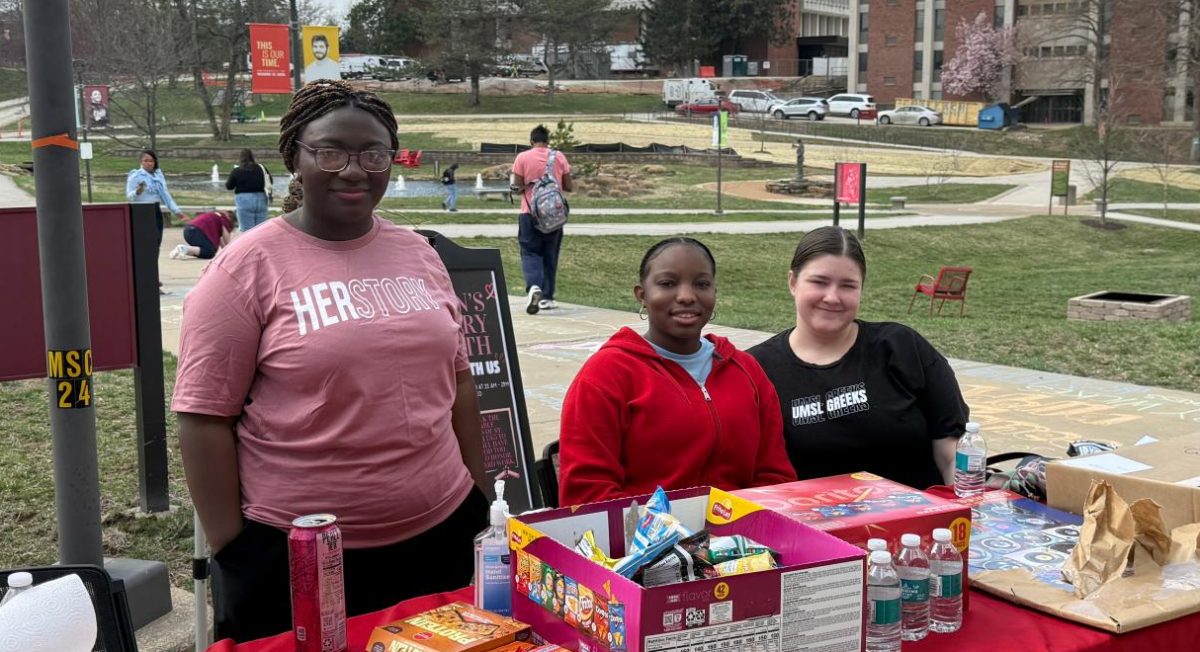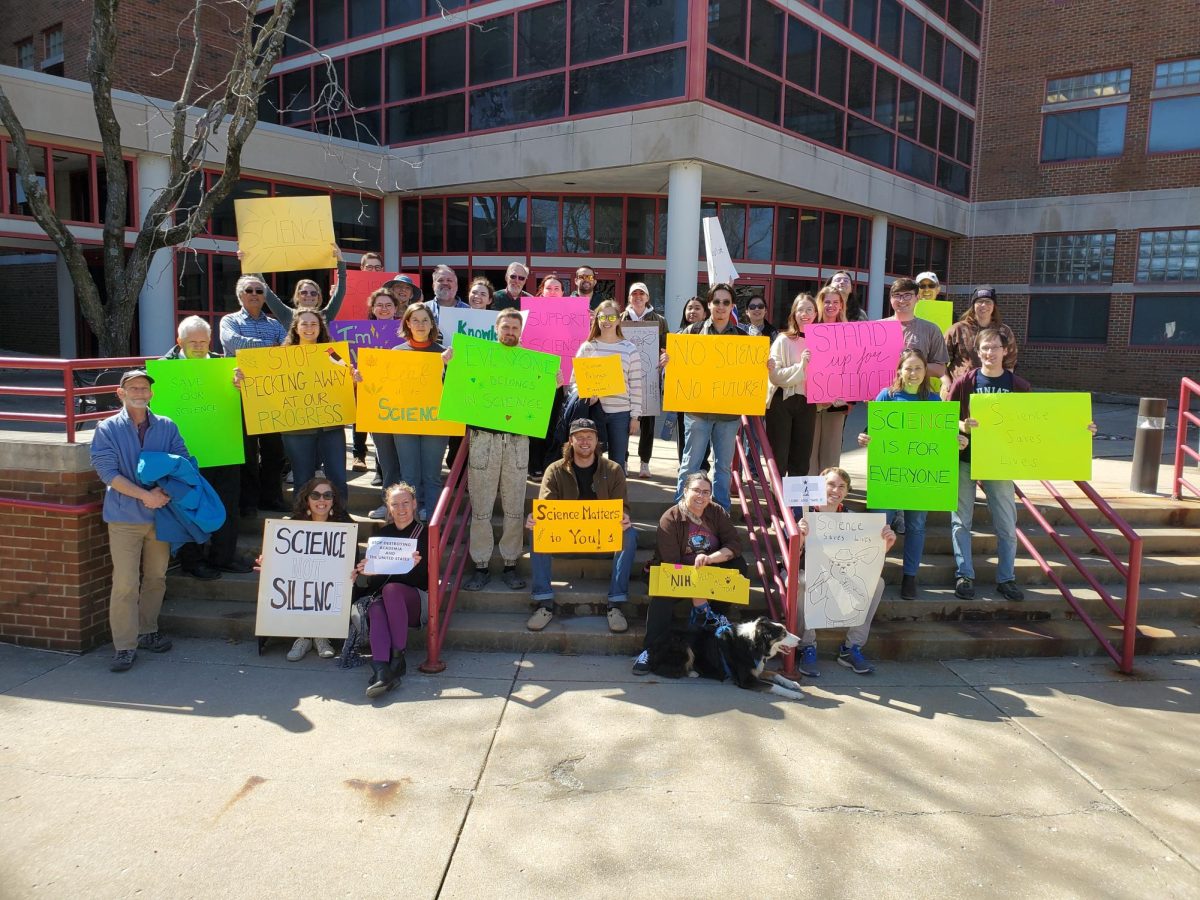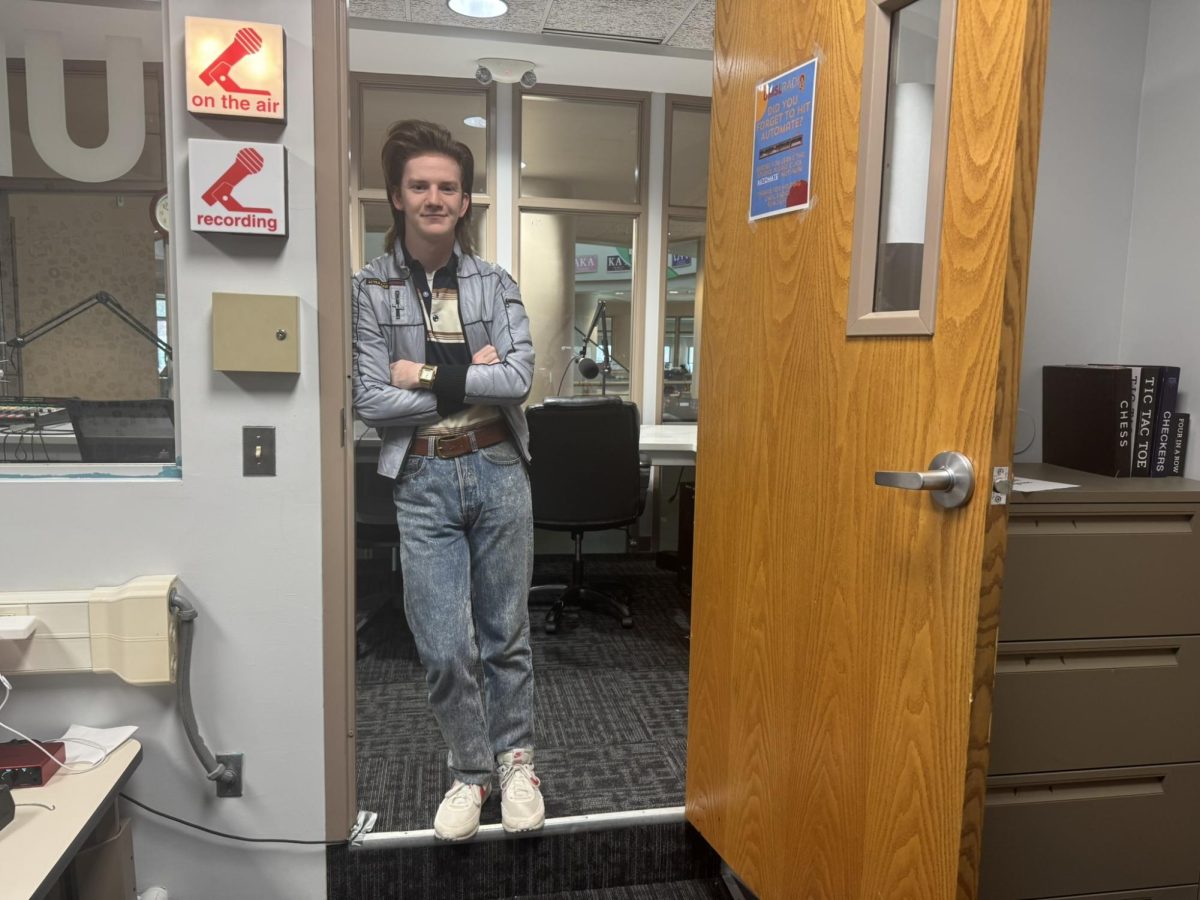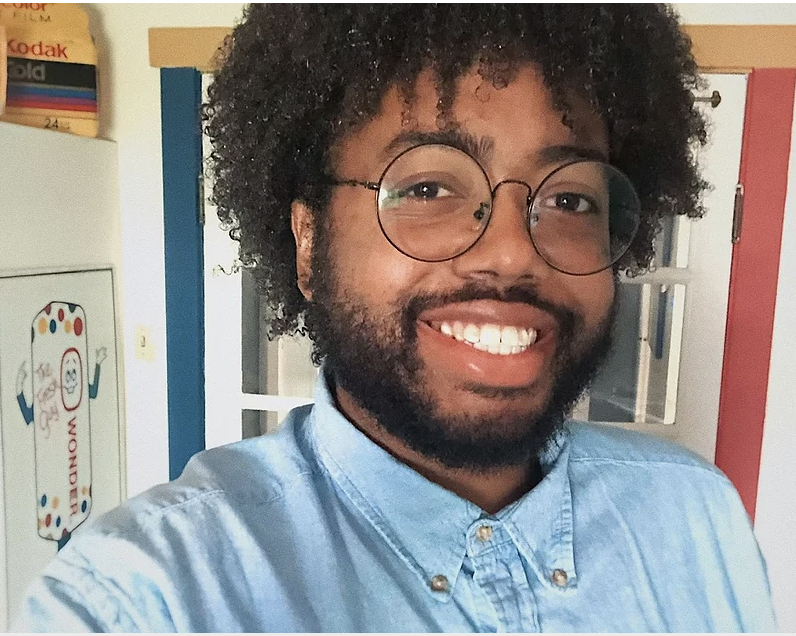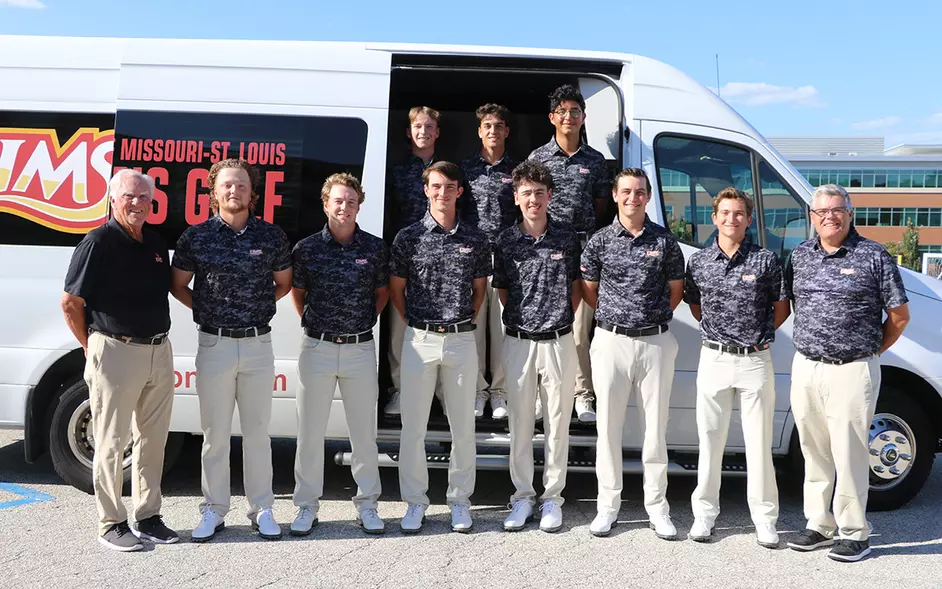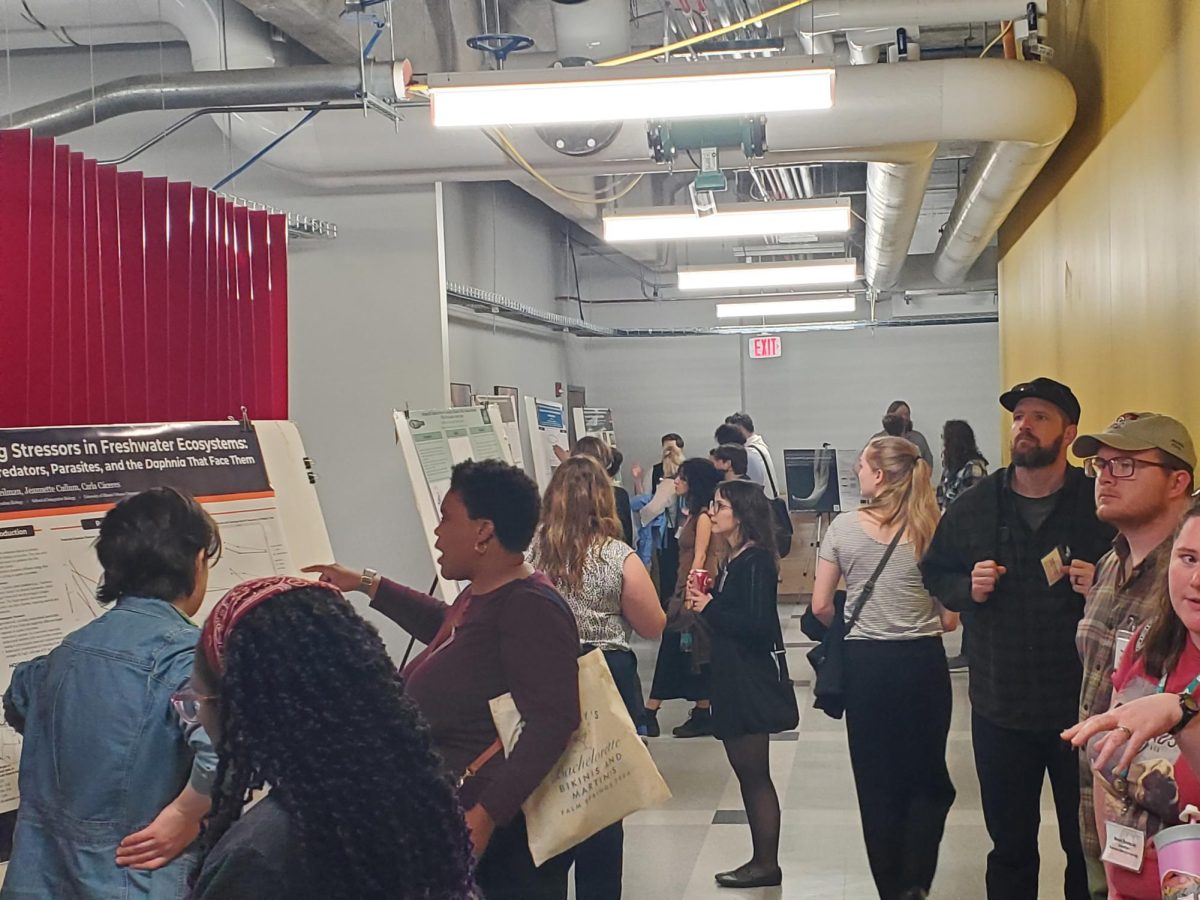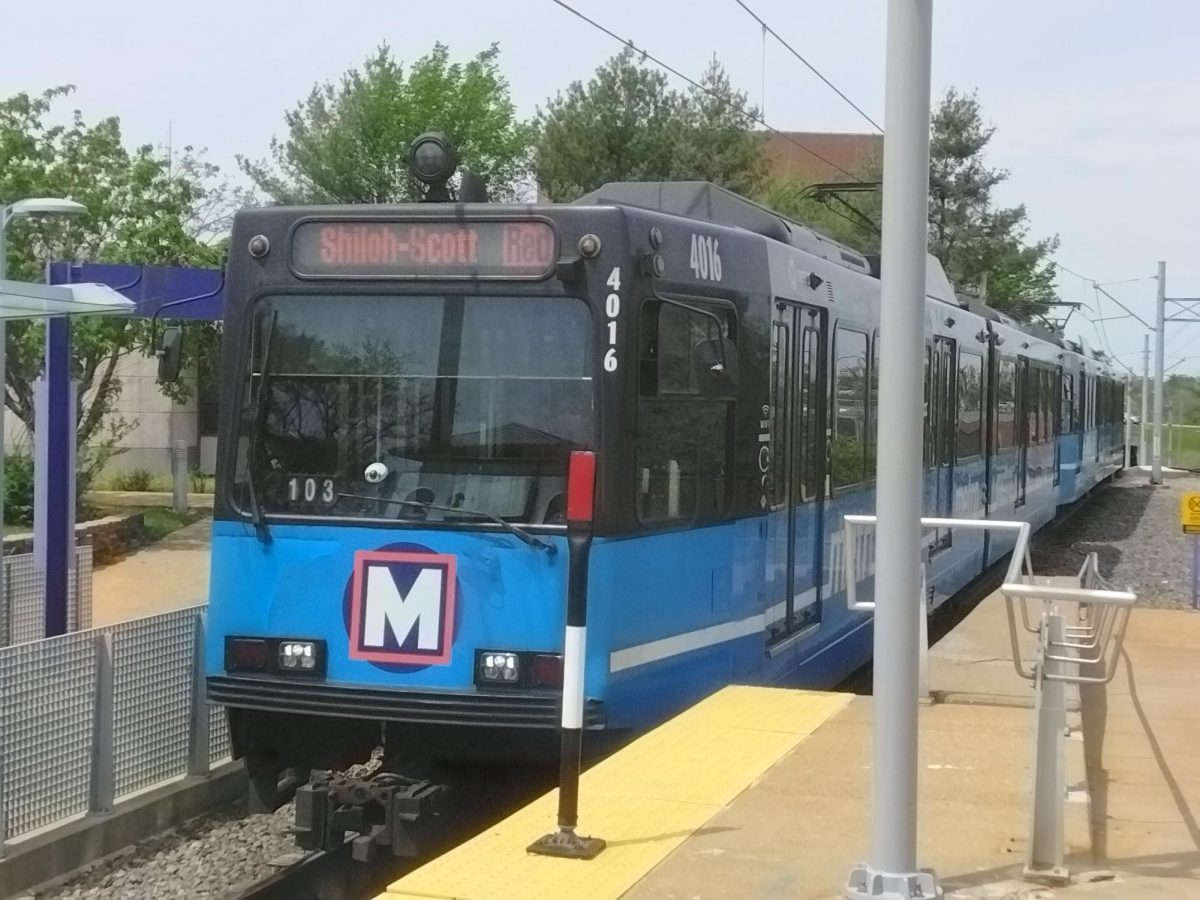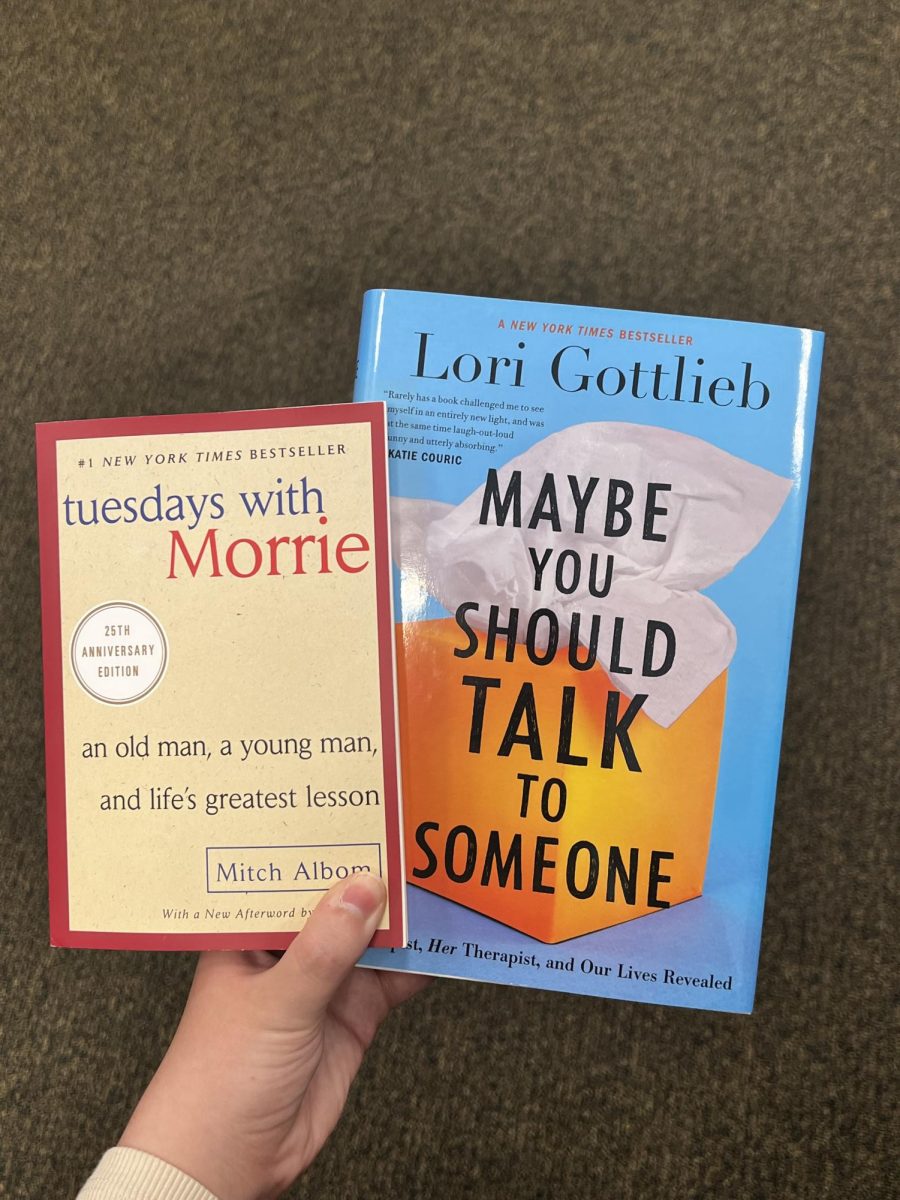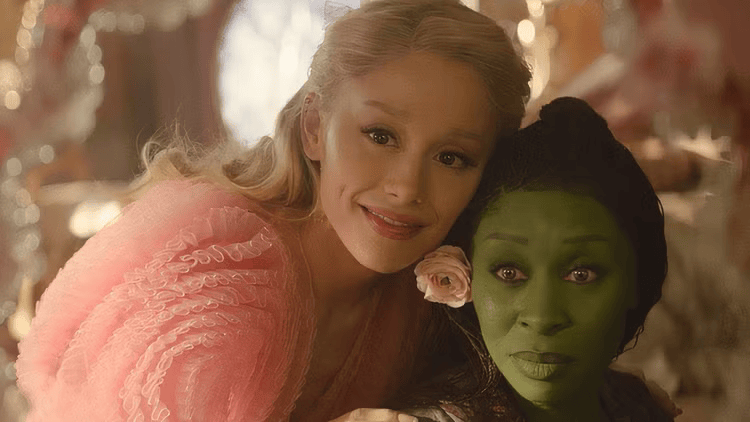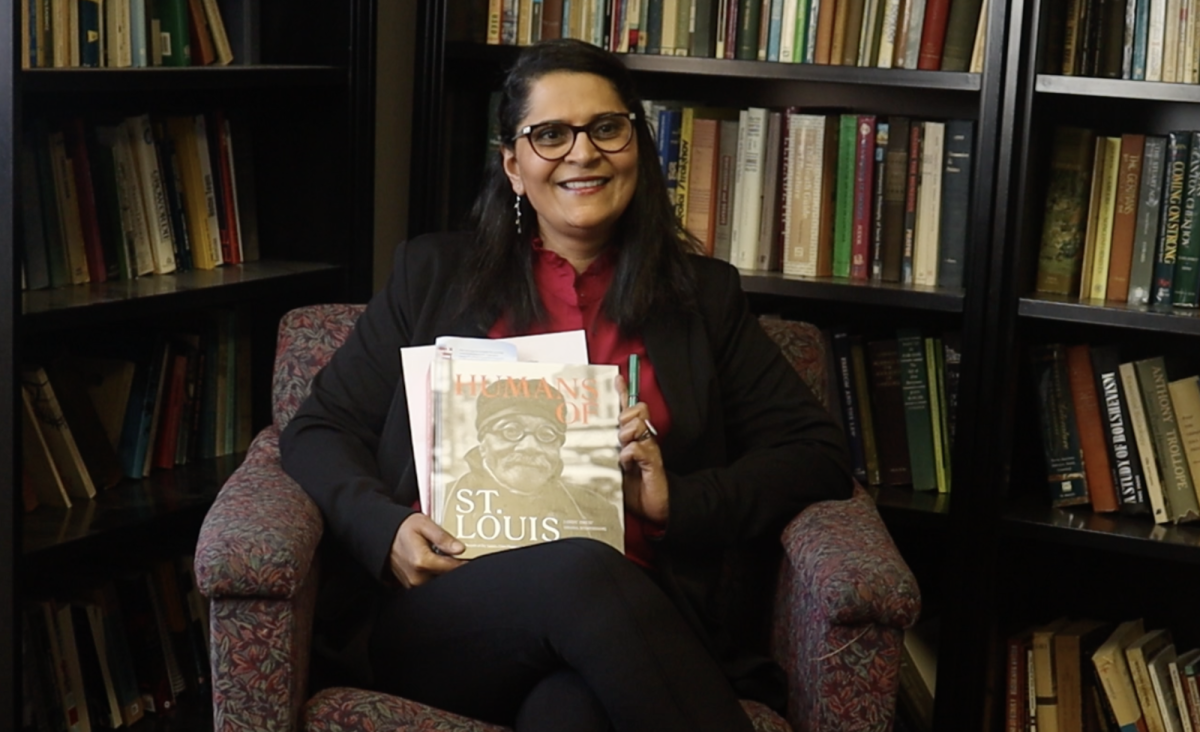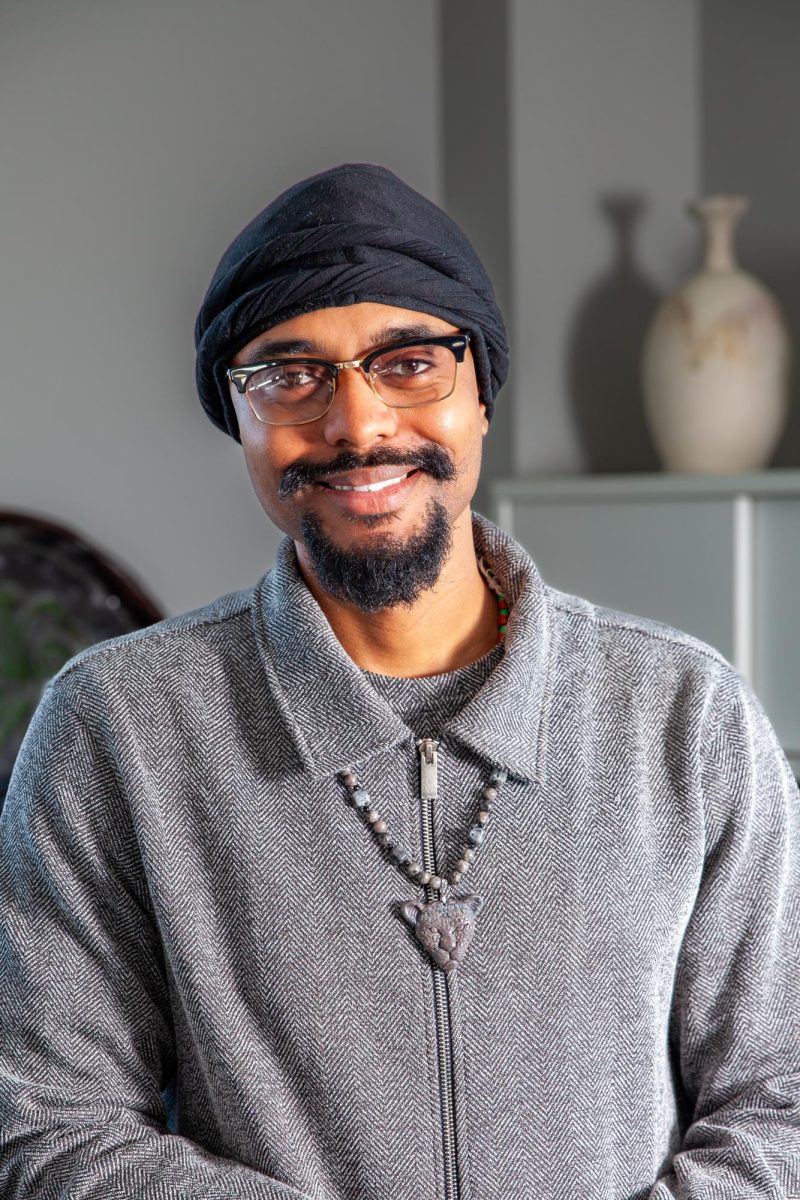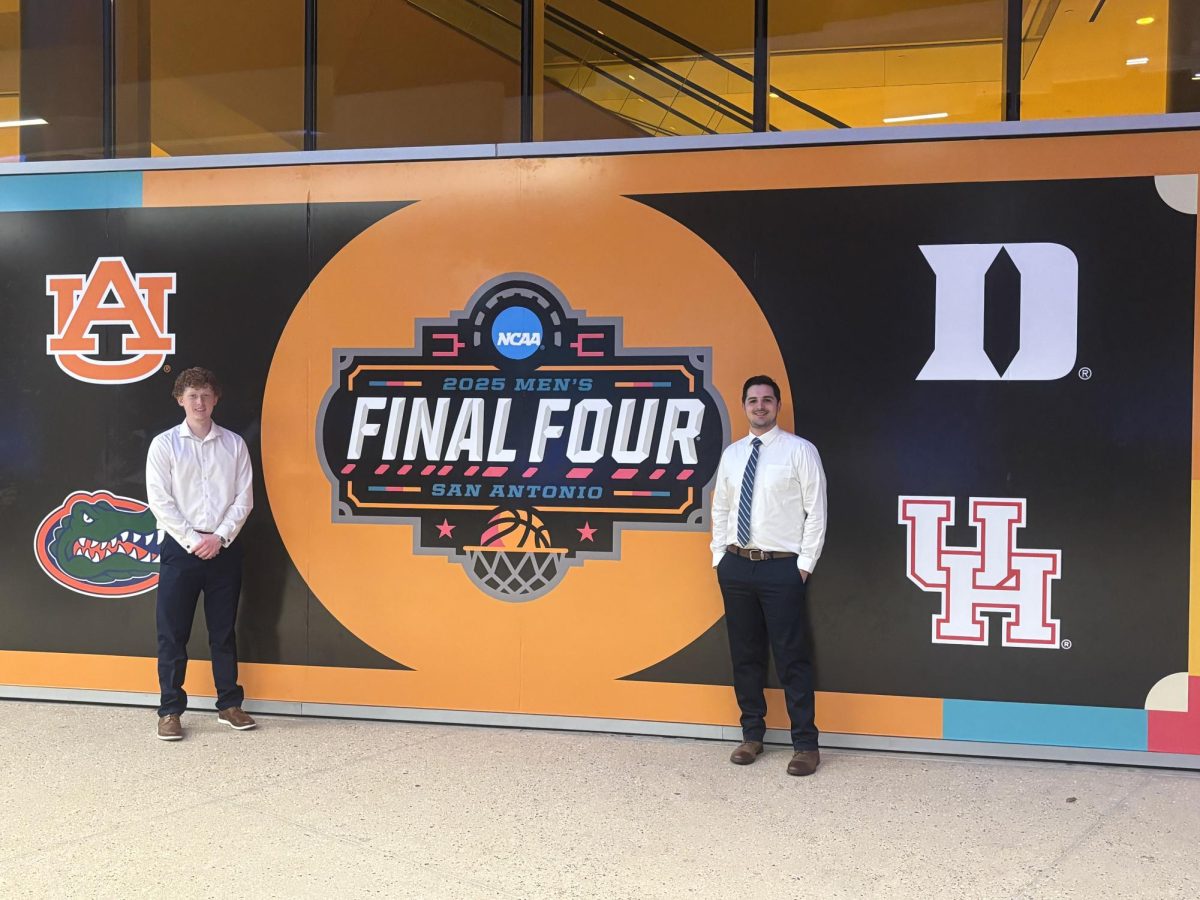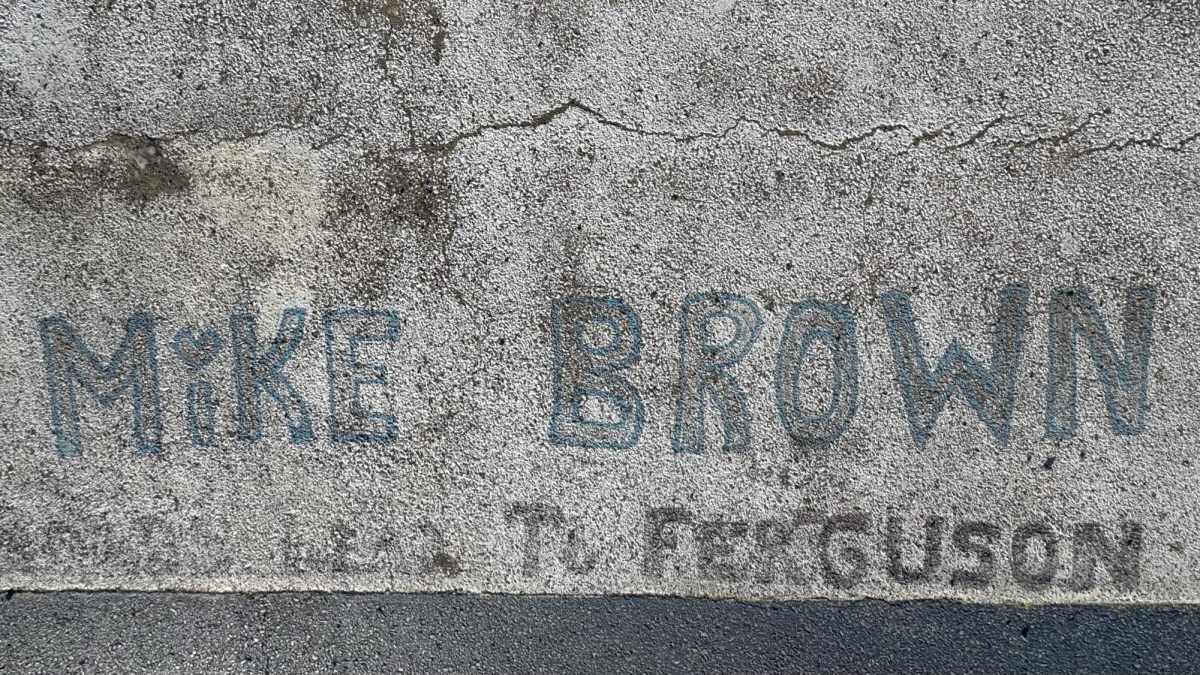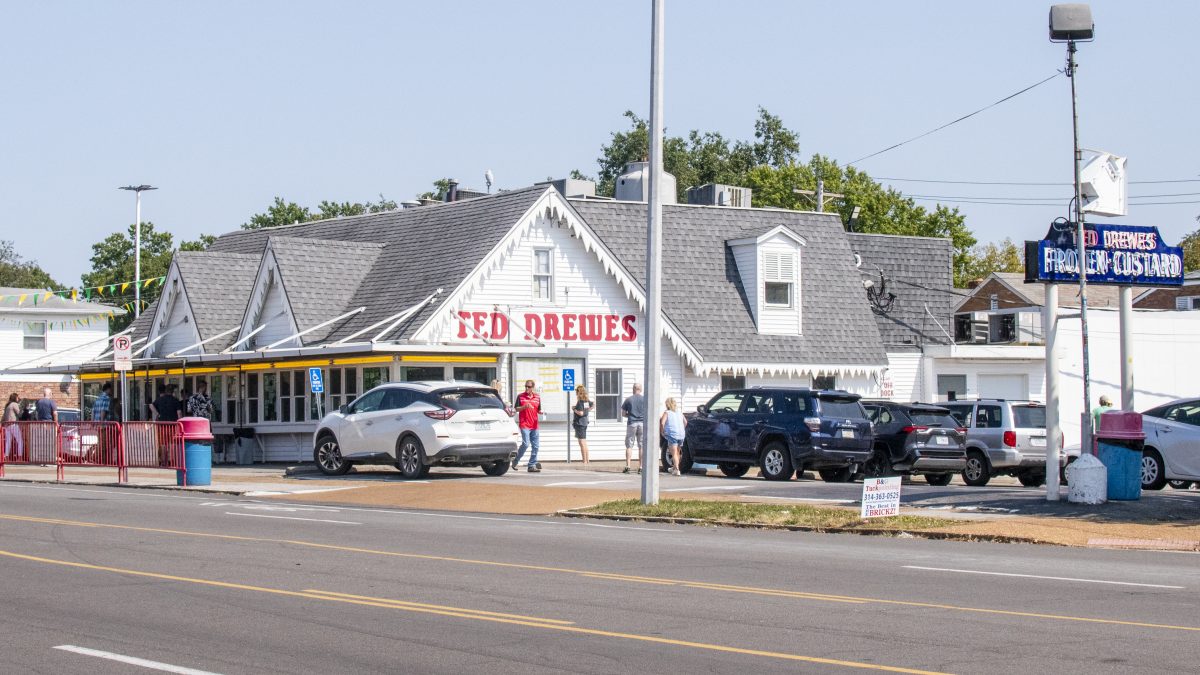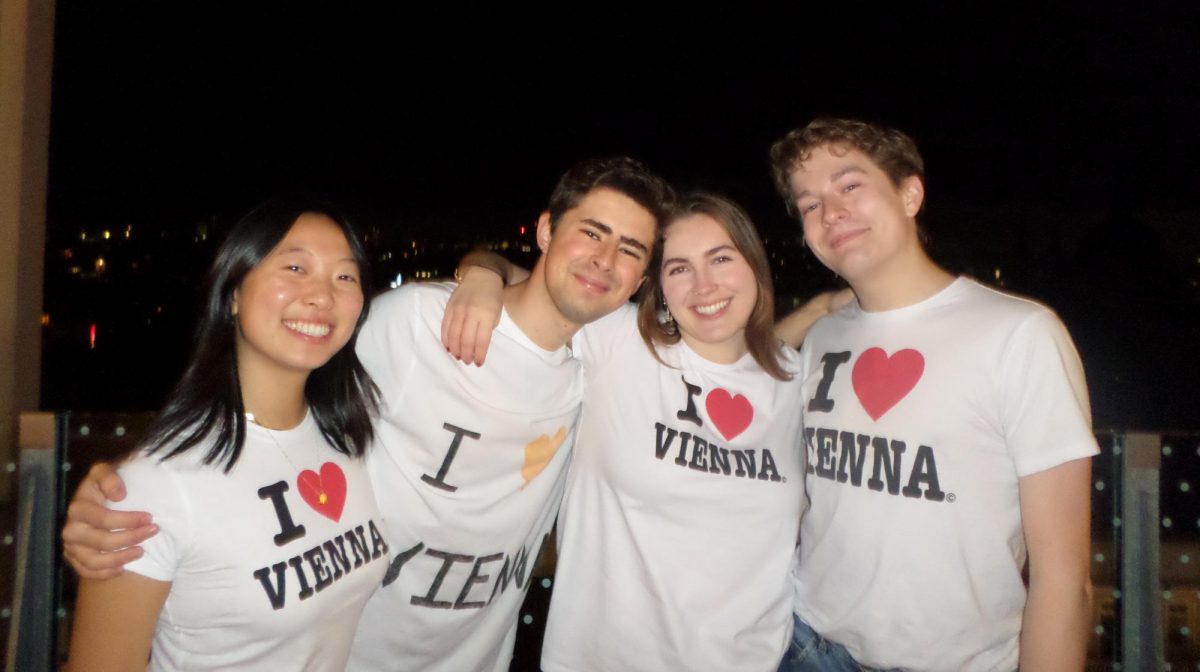Since the 40’s St. Louisans have known that the best place to go for a sweet treat is Ted’s. With vintage red lettering hovering above a constant flow of loyal customers, Ted Drewes delivers a bold visual statement nearly as delectable as their famous frozen custard.
The Ted Drewes stand is a charming reminder of simpler times—evoking the nostalgia of summer heat and laughter. The menu boards display an array of unique flavor combinations with colorful names like Muddy Mississippi and Crater Copernicus.
While waiting in line to order, friendly locals converse about daily life, making sure to wish everyone around them a good day. With cold custard in hand, the walk down the street leads to the companion gift shop and museum commemorating the life and impact of Ted Drewes Sr.. The gift shop sells merchandise of all kinds and the museum puts together a well-organized display that is a thoughtful tribute to Ted Sr.. The impact of this small family business turned landmark is forever ingrained into the history and culture of St. Louis. While Ted Drewes’ Frozen Custard looks like a small fish in St. Louis’ big pond of attractions, they foster a deep sense of community that is a core part of the city’s history.
As a new student in the St. Louis area, I had no idea what to expect. I ordered an All Shook Up concrete, and I have to say I was not disappointed. This custard makes my top three list, and I can see why a gem like Ted Drewes’ would have a cultural impact in an urban community.
It all started in 1929 when Ted Drewes Sr. opened his first custard stand in St. Petersburg, Florida, a state he used to travel to with his family to play tennis. Ted Sr. was an excellent tennis player and won the Muny Tennis Championships from 1925 to 1936, becoming a local celebrity. With a successful business in Florida, he was able to open two more locations in his hometown, St. Louis. He opened a location on Natural Bridge Road in 1930 and another on South Grand Avenue in 1931 with the Chippewa Avenue location opening a decade later. The Florida and Natural Bridge Road locations closed, but both south side locations are still open today.
As people continue to visit Ted Drewes, they will remember his life and impact on the city, providing good quality ice cream and Christmas trees. Today, Ted and his business are a symbol to St. Louis as a local success story. The Ted Drewes story is one of working hard and dreaming big.
The most popular item on the menu is concrete. The concrete was created in 1959 and is served by being turned upside down, showing off the thickness of the malt. This frozen delight is exclusive to the Midwest and can be paired with any combination of their more than 30 different toppings and add-ons . Despite the competition from the fast production of many restaurant chains, Ted Drewes has persevered and has been able to produce 150,000 gallons of custard per year for decades.
In 1962, Ted Jr. purchased land in Nova Scotia, Canada to grow his own Canadian balsam fir trees and have them shipped back to St. Louis. The finest trees are given the title “Dottie Tree,” after Ted Jr.’s wife, and are reseeded in St. Louis for the upcoming fall customers. After taking over the company from his father, Ted Drewes Jr. expanded the size of the Chippewa location in 1985, growing from five service windows to 12. With multiple locations and window expansions it was clear Ted Jr. stayed close to the family motto, “Our Business Is Service.”
As a new St. Louisan, I had preconceived notions of St. Louis in general. I thought the entire city would be full of fast-paced city life. I think of St. Louis as a commuter city, similar to how UMSL is a commuter university. Instead, I found that in some areas of the city, especially those with fewer resources and opportunities to expand, the different communities have been here for a long time. Not only do they stay here, but they care about the city and each other.
On August 26th, 2024, Ted Drewes Jr. passed away at 96. His commitment to his community and business will forever be remembered as those who loved him continue his legacy.
To fully understand this St. Louis icon and his impact, I went straight to the source and spoke with the family of Ted Drewes. Joshua Dillon, grandson of Ted Drewes Jr., brought me behind the service windows to witness the magic of this gift in action.

What is your relation to Ted Jr.?
So Ted is my grandpa. My great-grandpa would have been Ted Sr., who started the business. He was the tennis player, he wasn’t really a businessman, but Ted Jr. went to Wash U and went to school for business. He ended up making this place into what it is today. Me and my brother both work here. We’re the only two family members, actually, that still work at Ted Drewes. With the exception of my dad … my dad is the owner now with my mom … my brother and I are gonna be the owners soon.
Do you have a fondest memory with Ted Jr. to share?
A lot of people have this perspective of Ted where he’s this businessman that’s always just this put-together, grown-up person … But having the perspective of him being my grandpa—I remember this one time he came to pick me up, just me specifically. He picks me up from home and he’s throwing his pocket knife into the grass. And I come outside, and I’m like, ‘What are you doing?’ … he picks it up , just looks at me, and he goes, ‘Ohh, I was a boy once too you know’ and then keeps throwing it into the grass … It was just, like, kind of a moment where I realized … he’s just a real guy that was, I guess, a lot of the time he was putting on a show.
From then on, I had this thought of how hard it would be to always be somebody who the city, your family, the company—everyone is relying on you to be a person and so you have to be that person all the time. And so it’s a lot of pressure. It’s like when he’s in these situations where he could just be himself, he was like a totally different person. He was kind of goofy, you know, and we got to see that sometimes.
People would say, ‘Ohh, yeah, he was such a nice guy,’ you know, ‘kind man,’ but he wasn’t nice. He didn’t pull punches. He would tell you exactly what he thought. The thing is though, what made that special is that when he saw things, he didn’t give bland compliments. So, if he thought you did a good job, he wouldn’t just say ‘good job,’ he would think of a specific thing that you did that was different from how other people do it and say ‘I noticed how you did that. That’s a good idea. And I like how good you are at this specific thing,’ or whatever. So, he would always pay very specific compliments, which I guess made it hurt that much more when he said something negative. But … it just all came from that he really cared. He really cared about each and every individual and he really cared about the business … I mean, he cared about everything.
As I got older, I started seeing that the important things in life are not just about how much money you could make, or how big you could make something, or how flashy everything is. The most important things in life are seeing those smiles, seeing how you’re making people happy every day. And you saw me, I’m working right up at the window and I’m handing out the ice cream and I get to see people go from like, well, this is just a normal day to I’m getting ice cream now. And I get to see that smile and I get to see them enjoying their ice cream. And it’s a break for people. I get to see people at their best … the same goes for when they’re buying their Christmas trees… you become a part of so many traditions, so many family traditions. And it gives you this perspective of St Louis that’s almost warped.

I see St. Louis as this amazing city where there’s just all this fellowship and community and family bonding and friendships and support and everybody loving everyone, and the reason I see that is because that’s what I see when I’m here. And so … if anybody has these sort of negative opinions about the city it’s like, well you say that but, I see something very different. And Ted [Jr.] provided me with that vision, with that ability to see that. So, I look at it now as just this amazing gift that I’ve had this amazing privilege.
I would say most of St. Louis is a fast-paced city. For those people who are passing by or are just students commuting who don’t really experience that family feeling, what do you want them to know about Ted Jr. and what you have here?
I guess to them, what I would want them to know about Ted, is … all he ever really has cared about is giving a service that’s beyond what people are used to receiving when they go anywhere else. So, when you see crowds of 200 people, you’re still not gonna wait any longer than 10 minutes for your ice cream. Which isn’t something that you have anywhere else … And it’s not just the speed, you know, service comes with other things too. It’s sort of making people feel like we really do care … Ted had had a lot of things that were very important to him, but it was very clear, just in his daily life, that he cared. He cared about the community, the city of St. Louis, he cared about having something that was special and he cared about giving good service.
He didn’t live a life of glamor. I mean, people think that Ted was just this rich guy that was living in comfort. But he worked literally 70 hours a week for his entire life until he retired. I mean, he was not slacking. And then when he did finally retire, sure he had some nice stuff, but he wasn’t a CEO that moved and had eight houses in the Bahamas or whatever … All of his money went back into the family, back into the business … it’s just all given back to the community. So, I think the thing to know, and same with the current owner of my dad, is that they’re not trying to become rich men. And I think that’s just not very common nowadays.
Is it true that you intend to take over in the future?
Yes, and my brother and I are both all in. And we’ve been given the whole spiel about, you know, ‘you guys could sell … and we have no control over whether you do or you don’t.’ But we both were right away like, ‘why?’ I mean, we’re happy. We’re both happy.

What do you know about the future of Teds? What can we expect from Ted’s in the future?
You can expect these things for sure: Our quality will never diminish, our recipe—if we can help it—will never change and our service will always be pushing to have the absolute top service we can have. All of the lessons that I’ve learned along my way here, I’m going to be applying. Same with my brother, we’re going to be applying everything we’ve learned up to this point to the future. We’re always going to have a piece of how it’s always been. That doesn’t mean we’re never going to change anything. I mean … we’ll want to increase, you know, catering all that type of stuff. We can always do more.
So the people of St. Louis can expect classic, quality, Teds for years to come?
Yes … that’s never gonna change.
Is there anything else you want people to know? Do you have anything that you want to share specifically with the students at UMSL?
When I was of college age, I had, of course, this as an option for me. It wasn’t at the forefront of what I wanted to do. But I remember at the time … everything about society is telling you to be aggressive, make more money, find a job where you can work hard and get paid … and try to find things that you love and do that. And that’s what you’re hearing from everybody. And that’s good advice. But my advice would be instead of trying to always do what you love, try to love what you do. Find something that is stable and learn to love it. And you can love just about anything. And it’s a whole mindset switch. I think when I was in my mid-30s, I had this sort of renaissance where all of a sudden I was like, wait a second, I’m trying to find a way to do things that make me happy. I could just be happy with the things that I do. And then as soon as I had that flip of mentality, it made everything so much more wonderful. And I think that’s something that Ted had figured out a long time ago, too.

